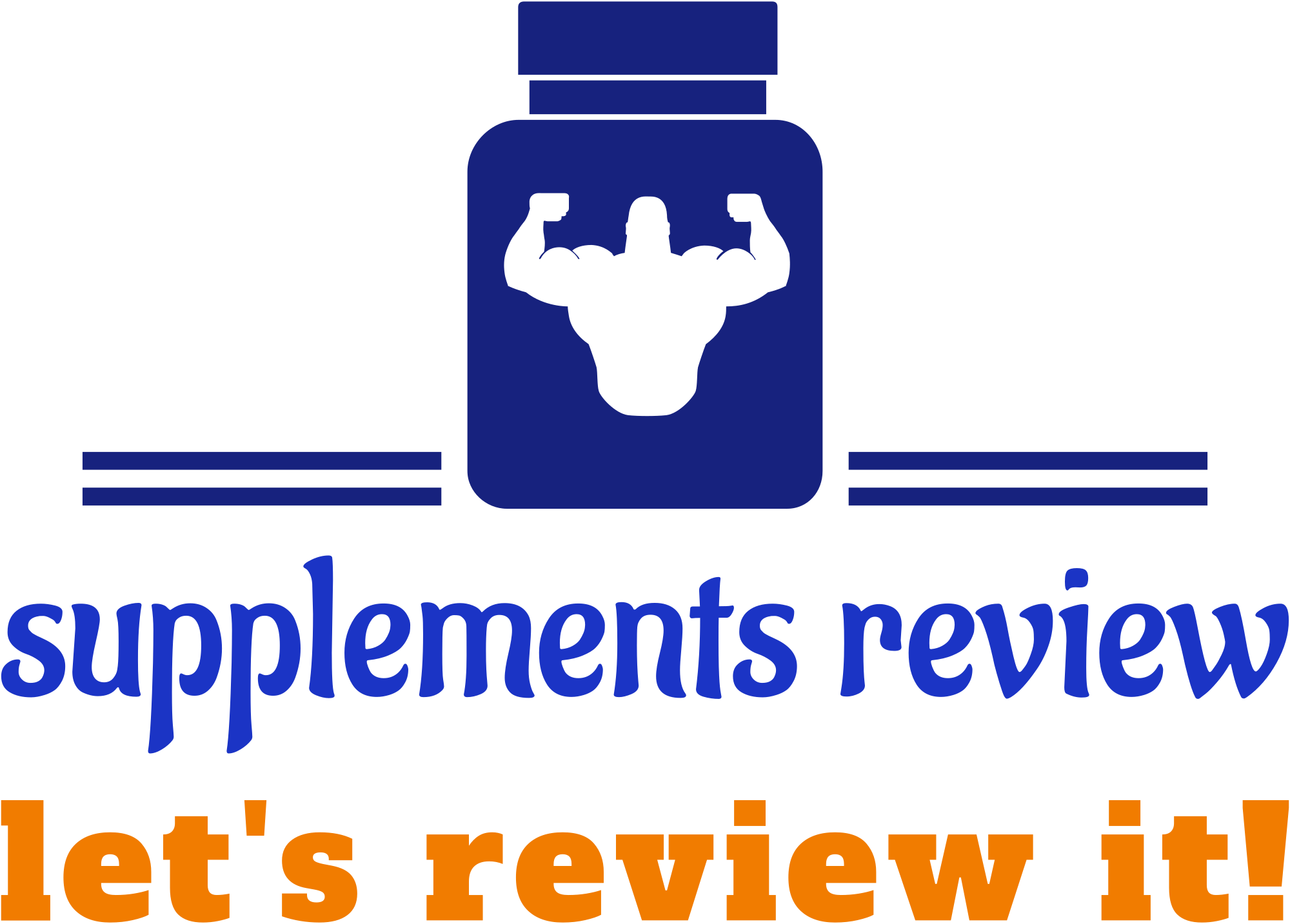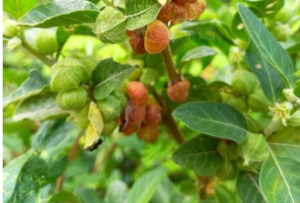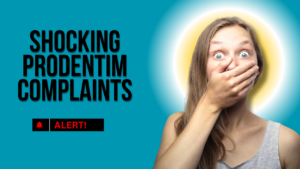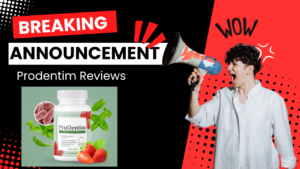The Benefits of Saffron Extract for ADHD Adults
Saffron extract is gaining attention as a natural supplement that may benefit adults living with ADHD. This vibrant red spice, derived from the flower of Crocus sativus, is known for its unique flavor and color in cooking, but recent studies highlight its potential therapeutic effects on attention deficit hyperactivity disorder (ADHD). Let’s explore the benefits of saffron extract for ADHD adults dealing with ADHD.
Understanding ADHD
ADHD is a neurodevelopmental disorder that affects both children and adults. Symptoms can include difficulties with attention, hyperactivity, and impulsiveness. For many adults, these symptoms can lead to challenges at work, in relationships, and in various aspects of life. Traditional treatments often include medications and therapy, but some individuals are seeking alternative options. This is where saffron extract comes into play.
Key Benefits of Saffron Extract
Saffron extract has several potential benefits for adults with ADHD. Here are some of the most promising advantages:
- Improves Mood: Saffron is believed to have antidepressive effects. A more stable mood can enhance focus and reduce impulsivity in adults with ADHD.
- Enhances Cognitive Function: Some studies suggest saffron may boost cognitive function. Improved cognition can aid in better attention span and memory retention.
- Reduces Hyperactivity: Saffron’s calming properties might help to lessen hyperactive symptoms, creating a more balanced state of mind.
- Natural Alternative: For those looking for non-pharmaceutical options, saffron extract presents a natural alternative to traditional ADHD medications.
Scientific Backing
Recent research has started to highlight the positive impacts of saffron extract on ADHD symptoms. In clinical trials, participants have reported noticeable improvements in attention and decrease in restlessness after supplementing with saffron. With many adults looking for holistic approaches, the preliminary findings are encouraging.
How to Use Saffron Extract
If you are considering saffron extract to manage ADHD symptoms, consult with a healthcare professional for personalized advice. Below are some common recommendations:
- Dosage: Typical doses range from 30 mg to 200 mg per day. Start with a lower dose and gradually increase as needed.
- Form: Saffron comes in various forms, including capsules, tinctures, and powdered spice. Choose one that fits your lifestyle.
- Consistency: For the best results, take saffron extract consistently, ideally at the same time every day.
Potential Side Effects
While saffron is generally considered safe, it’s important to be aware of potential side effects. Some individuals may experience gastrointestinal discomfort or allergic reactions. If you notice any adverse effects, discontinue use and consult a healthcare provider immediately. Additionally, saffron can interact with certain medications, so it’s crucial to discuss your complete health history when considering supplementation.
Additional Supportive Strategies
While saffron extract can be beneficial, it’s essential to adopt a holistic approach to managing ADHD. Consider these supportive strategies alongside supplementation:
- Balanced Diet: A healthy diet can impact your focus and energy levels. Incorporate whole foods rich in omega-3 fatty acids and antioxidants.
- Regular Exercise: Physical activity can help increase concentration and reduce impulsivity. Aim for at least 30 minutes of exercise most days.
- Meditation and Mindfulness: These practices can help improve attention span and emotional regulation over time.
Saffron extract into your daily routine might provide relief and improvement for adults facing ADHD challenges. Always remember to discuss your plans with a healthcare professional to ensure that it’s the right choice for you. With the right combination of supplements and lifestyle changes, you can manage ADHD symptoms more effectively and live a fulfilling life.
Scientific Research Supporting Saffron’s Efficacy in ADHD Treatment
Saffron, a vibrant and precious spice derived from the flower of Crocus sativus, has gained attention for its potential benefits beyond culinary uses. Particularly, recent scientific research has explored saffron extract’s effectiveness in treating Attention Deficit Hyperactivity Disorder (ADHD) in adults. This natural supplement could offer a promising avenue for managing ADHD symptoms, leading many to consider it as part of their treatment plan.
ADHD is a neurodevelopmental disorder characterized by persistent patterns of inattention, hyperactivity, and impulsivity. Traditional ADHD treatments often include stimulant medications like amphetamines and non-stimulant options. While effective, these medications can lead to undesirable side effects. As a result, individuals are increasingly exploring natural options like saffron extract.
Multiple studies support the efficacy of saffron extract as a complementary treatment for ADHD. For instance, a randomized, double-blind, placebo-controlled trial published in the Journal of Child and Adolescent Psychopharmacology examined the effects of saffron on children with ADHD. Participants who received saffron showed significant improvement in ADHD symptoms compared to those who received a placebo. The findings indicated reductions in hyperactivity, impulsivity, and inattention, suggesting saffron extract as a valid alternative or supplement to traditional treatments.
Another important study published in the Journal of Psychopharmacology provided deeper insights into saffron’s role in managing ADHD symptoms. Researchers highlighted that saffron contains bioactive compounds such as crocin and safranal, which may contribute to its neuroprotective and anti-inflammatory effects. These compounds may help modulate neurotransmitter activity, particularly dopamine and serotonin, which are crucial in regulating mood, attention, and behavior.
The anti-inflammatory properties of saffron are particularly significant. Inflammation in the brain can exacerbate symptoms of ADHD by affecting cognitive function and emotional regulation. By reducing inflammation, saffron extracts create an environment more conducive to mental clarity and focus. For adults with ADHD, this is especially beneficial, as it may help improve overall functioning in daily tasks and social situations.
Besides its biochemical impact, saffron’s effects on mood enhancement are noteworthy. Many adults with ADHD also experience concurrent anxiety or mood disorders. Saffron extracts have been shown to exhibit antidepressant properties, which can further alleviate the emotional challenges often associated with ADHD. This dual action makes saffron a compelling option for those seeking more holistic approaches to managing their symptoms.
- Active Compounds: Crocin and safranal found in saffron play crucial roles in mood and attention regulation.
- Study Findings: Research reveals positive improvements in hyperactivity, impulsivity, and inattention among participants.
- Biological Impact: Saffron helps in reducing brain inflammation, enhancing cognitive function.
- Mood Enhancement: Its antidepressant properties support those with concurrent mood disorders.
When considering saffron extract, it’s essential to source high-quality products to ensure potency and purity. Look for saffron extracts standardized for their active compounds, as this can significantly impact effectiveness. Additionally, start with a lower dosage and monitor your response. Typical dosages range from 30 to 60 mg per day, but individual needs may vary.
Engaging with a healthcare professional is crucial before integrating saffron extract into your treatment regimen, especially if you are on medication or have existing health conditions. They can guide you on the appropriate dosage and ensure that saffron will not interfere with any prescribed treatments.
Saffron extract holds promise for adults managing ADHD, offering a natural alternative or supplement to traditional medications. With continuing research and growing anecdotal evidence, saffron might soon become a staple in the ADHD treatment conversation. Your journey to finding the right management strategies could very well include this vibrant spice, opening a new door towards improved attention, focus, and emotional well-being.
How Saffron Extract Compares to Traditional ADHD Medications
When considering management options for ADHD in adults, many explore alternatives beyond conventional medication. Saffron extract, derived from the Crocus sativus flower, has emerged as a potential natural treatment. But how does it measure up against traditional ADHD medications? Let’s delve into the comparison between saffron extract and standard treatments.
Traditional medications for ADHD often include stimulants like methylphenidate (Ritalin) and amphetamines (Adderall). These medications work by increasing the levels of specific neurotransmitters in the brain, which help improve focus, attention, and impulse control. However, they come with side effects such as:
- Insomnia
- Appetite loss
- Increased heart rate
- Anxiety or agitation
To mitigate these side effects, some adults are turning to saffron extract as a more natural alternative. Research indicates that saffron possesses neuroprotective properties, potentially helping with mood regulation and cognitive function. Studies suggest saffron may:
- Enhance mood
- Improve attention span
- Reduce impulsivity
Interestingly, a clinical trial published in the journal *Medical Principles and Practice* examined saffron’s effects on ADHD symptoms in comparison to traditional medications. This study involved adult participants diagnosed with ADHD who were given either saffron extract or a standard medication. Results showed that those taking saffron experienced notable improvements in ADHD symptoms, comparable to those on conventional medications but with fewer reported side effects.
Now, let’s look at the specific benefits of using saffron extract for ADHD:
- Natural Ingredients: Saffron extract is derived from a flower, making it appealing for those seeking a plant-based treatment.
- Fewer Side Effects: Many users report that saffron extract causes less discomfort compared to stimulant medications.
- Potential Mood Improvement: Saffron is known for its antidepressant-like effects, which may help those with ADHD who also experience anxiety or mood swings.
However, saffron extract does have its limitations. While it may help reduce symptoms of ADHD, it’s essential to approach it as a complementary option rather than a primary treatment. Unlike traditional medications, saffron may take longer to show effects, and more extensive research is needed to fully understand its potential in managing ADHD.
Additionally, saffron’s availability and cost might be considerations. High-quality saffron extract can be substantially more expensive than mass-produced pharmaceutical options. You should also note that the purity and concentration of saffron can vary significantly between products, impacting effectiveness.
Many adults have turned to saffron extract as part of a broader approach to managing ADHD symptoms. Combining lifestyle changes, such as a balanced diet, regular exercise, and mindfulness practices, with saffron supplementation may offer a holistic strategy to improve focus and overall well-being.
While some individuals respond quickly and positively to saffron extract, others might not experience the same level of benefit. Everyone’s body chemistry is different, which means it’s necessary to monitor symptoms closely when switching or combining treatments. Consulting with a healthcare provider should always be your first step before making any changes to your ADHD management plan.
Ultimately, saffron extract presents an exciting alternative to traditional ADHD medications. It may serve as an effective tool for some adults seeking less conventional routes. As research progresses, we could find even more reasons to incorporate this natural herb into our daily lives for not just ADHD but for overall mental health improvement.
Dosage and Administration: Using Saffron Extract Safely for ADHD
Saffron extract has gained attention as a potential natural treatment for various conditions, including ADHD in adults. If you’re considering saffron extract for managing ADHD symptoms, it’s essential to understand the proper dosage and administration to ensure safety and effectiveness.
The extract is derived from the saffron crocus flower, which has been used for centuries in traditional medicine. Its active compounds, specifically crocin and safranal, are believed to play a role in enhancing mood and cognitive function, making it a potential ally for individuals dealing with ADHD. However, as with any supplement, knowing how to use it correctly is crucial.
To use saffron extract effectively, one must pay attention to the dosage. Research studies have explored different dosages to find optimal results. Generally, a common dosage range for saffron extract is:
- 30 mg to 60 mg per day.
- Some studies have used doses of up to 100 mg per day, but it is advisable to start lower.
When starting with saffron, it’s wise to begin with a lower dosage to assess how your body reacts. Starting with 30 mg daily allows you to monitor any potential side effects before increasing the dose as needed. Remember, everyone’s body responds differently, and what works for one person may not work for another.
Administration of saffron extract can vary as well. You can find saffron supplements in various forms, including:
- Capsules: These are the most common and provide a standardized dose.
- Powder: This can be mixed with water or smoothies for those who prefer a more natural form.
- Tinctures: These liquid extracts allow for easy dosage adjustments.
Take saffron extract with food to enhance absorption and reduce the risk of gastrointestinal discomfort, which some users might experience on an empty stomach. it into a well-balanced diet can also help optimize its benefits while managing ADHD symptoms.
It’s essential to consult with a healthcare professional before starting any new supplement regimen, especially if you’re currently taking medications for ADHD or other health conditions. This is crucial because saffron can interact with certain medications and conditions. For instance, saffron has blood-thinning properties, so if you are on anticoagulants, your doctor needs to be informed about your saffron intake.
Monitoring your response to saffron extract is also advisable. Keep a journal of any changes in your symptoms, mood, or energy levels. Tracking these effects can help determine whether the extract has beneficial effects on your ADHD. If you notice any adverse effects such as dizziness, dry mouth, or nausea, consider lowering your dose or discontinuing the use and discussing it with your healthcare provider.
Moreover, the quality of the saffron extract you choose matters. Always opt for high-quality products from reputable brands. Look for saffron supplements that have undergone third-party testing for purity and potency. This step can significantly affect your experience and results.
Saffron extract is generally considered safe for most adults, but long-term safety data is limited. Therefore, it’s best to use it cautiously and be aware of the recommended duration of use. Regular reassessment with your healthcare provider can ensure you’re making safe choices that align with your health goals.
The dosage and administration of saffron extract for ADHD can influence its effectiveness. Starting with a moderate dose, choosing high-quality supplements, and consulting with a healthcare professional will optimize your chances of experiencing the potential benefits of saffron extract. Always prioritize your health and make informed choices when exploring new treatments and supplements.
Personal Success Stories: Experiences of Adults Using Saffron Extract for ADHD
Many adults with ADHD (Attention Deficit Hyperactivity Disorder) are constantly searching for effective treatments to manage their symptoms. One natural remedy that has caught the attention of many is saffron extract. This yellow spice, derived from the flower Crocus sativus, has been explored for its potential benefits in helping to alleviate the challenges associated with ADHD. Here, we’ll explore the personal success stories of adults who have incorporated saffron extract into their daily routines.
Individuals have shared remarkable experiences after using saffron extract. One adult reported significant improvements in their ability to concentrate during work meetings. Before trying saffron, they struggled to maintain focus and often felt overwhelmed by distractions. However, after a few weeks of daily supplementation, they noticed that they could participate in discussions more actively. They described the experience as liberating, allowing them to express their ideas without the cloud of distraction. This personal victory demonstrated how saffron extract can enhance focus and engagement.
Another individual shared how saffron extract positively impacted their emotional regulation. Many adults with ADHD experience mood swings and irritability. After incorporating saffron into their routine, they felt calmer and more stable emotionally. This change allowed them to engage more positively with friends and family. One adult noted, “I used to snap at little things, but now I feel more in control of my responses.” Such experiences highlight saffron’s potential to aid emotional balance and improve interpersonal relationships.
Additionally, sleep quality is a common concern for adults with ADHD. Poor sleep often exacerbates symptoms such as inattention and hyperactivity. One user of saffron extract reported a significant improvement in their sleep patterns. After taking saffron regularly, they found it easier to fall asleep and noticed they woke up feeling more refreshed. This enhanced sleep led to better daytime focus and overall mood, further showcasing how saffron extract can tackle various aspects of ADHD symptoms.
- Improved Focus: Users have reported better concentration during work and leisure activities.
- Emotional Stability: Many notice a reduction in mood swings and irritability.
- Better Sleep: Improved sleep patterns help enhance daily performance and mood.
Another compelling story comes from an adult who struggled with task completion. This individual often started projects with enthusiasm but would lose interest before finishing them. Once they added saffron extract to their daily regimen, they discovered an increase in motivation. As they began to complete tasks more easily, their sense of achievement flourished. This personal transformation underscores saffron’s potential to boost motivation and productivity effectively.
Moreover, the journey of an adult diagnosed with ADHD in their late twenties speaks volumes. They shared that traditional medications often left them feeling jittery or emotionally flat. After switching to saffron extract, they appreciated the absence of such side effects. They experienced a smoother, more natural enhancement of focus with a sense of well-being. This story reveals that saffron might offer a gentler alternative for those seeking ADHD management.
Furthermore, adults have mentioned how saffron extract has positively influenced their social interactions. One user reported feeling more sociable and less anxious in group settings. She explained, “I used to feel anxious before social events, but now I can engage and enjoy conversations.” This enhanced social capability can significantly benefit individuals striving to build and maintain relationships, which often suffer due to ADHD-related challenges.
It is essential for anyone considering saffron extract to consult healthcare professionals to ensure it fits well with personal health needs and existing treatments. While these personal success stories are encouraging, everyone’s experience can vary. However, as more adults explore natural remedies like saffron extract, it offers hope and potential for improved management of ADHD symptoms.
The personal experiences of adults using saffron extract for ADHD combine to create a tapestry of hope and positive change. From enhancing focus and emotional regulation to improving sleep quality and social interactions, saffron might provide valuable support for those navigating the complexities of ADHD in their daily lives. The choice of a natural remedy can be empowering, reminding us that we must seek pathways that resonate with our unique journeys. Whether you are considering saffron for the first time or have used it for a while, the testimonials of others can inspire and guide you on your path to personal success.
Conclusion
Saffron extract has emerged as a promising alternative for adults dealing with ADHD, offering a natural approach to managing symptoms. The benefits it presents are supported by scientific research, which highlights saffron’s potential to improve attention and reduce hyperactivity. This makes it an appealing option for those seeking alternatives to traditional ADHD medications, which can often come with unwelcome side effects.
When comparing saffron extract to conventional treatments, it’s clear that many individuals have found success in using this natural remedy. However, understanding the right dosage and administration is crucial for those considering this path. It’s essential to consult with a healthcare professional to ensure safety and effectiveness, tailoring the use of saffron extract to individual needs.
Personal success stories add to the overall appeal of saffron extract, showcasing experiences from adults who have embraced this natural solution. Many report noticeable improvements in their focus, mood, and overall daily functioning. These real-life accounts not only inspire hope but also underscore saffron’s increasing recognition in the ADHD community.
For adults exploring alternatives, saffron extract may offer a valuable addition to their toolkit for managing ADHD symptoms. Embracing natural remedies like saffron provides not just a potential avenue for relief but also a sense of empowerment in one’s health journey. As more research unfolds, saffron extracts could play an integral role in ADHD management, enhancing the lives of those affected.




